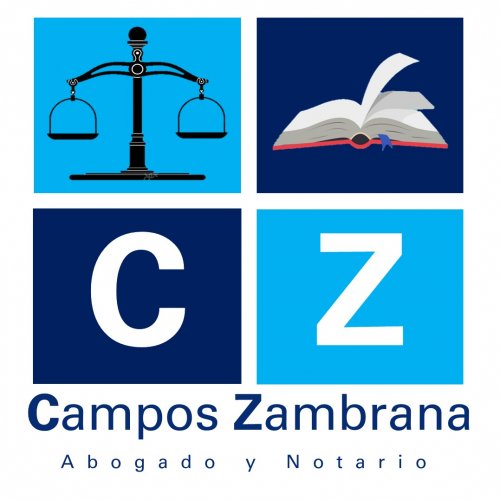Best Housing, Construction & Development Lawyers in Nicaragua
Share your needs with us, get contacted by law firms.
Free. Takes 2 min.
Free Guide to Hiring a Real Estate Lawyer
Or refine your search by selecting a city:
List of the best lawyers in Nicaragua
About Housing, Construction & Development Law in Nicaragua
Housing, Construction & Development Law in Nicaragua encompasses the regulations, standards, and legal requirements that govern the planning, design, construction, occupancy, and maintenance of buildings and other physical structures. This area of law seeks to ensure that construction and land development meet safety, environmental, and zoning requirements while promoting sustainable practices. It also involves legal aspects related to real estate transactions, land use, and the rights of property owners, tenants, and developers. Given Nicaragua's growing development profile, the legal framework in this sector is crucial to balancing growth with environmental conservation and land use planning.
Why You May Need a Lawyer
There are several situations where you might require the expertise of a lawyer specializing in Housing, Construction & Development in Nicaragua. These include:
- Disputes involving property transactions, such as buying or selling land.
- Understanding and complying with local zoning laws and regulations.
- Contract drafting and negotiation for construction projects.
- Resolving construction defects or breaches of contract by contractors or property developers.
- Managing landlord-tenant conflicts, including eviction proceedings.
- Navigating the legal process of registering property titles.
- Dealing with regulatory bodies and obtaining necessary permits for development projects.
- Seeking compensation for damages due to construction negligence.
Local Laws Overview
Nicaragua's legal framework for Housing, Construction & Development includes several key regulations and standards:
- Urban Planning and Zoning: Governed by municipal plans, which dictate land use, types of allowable structures, and density of development.
- Construction Permits: Required for most construction projects, ensuring compliance with safety and zoning laws.
- Environmental Impact Assessments (EIA): Necessary for certain projects to evaluate potential environmental impacts before construction begins.
- Real Estate Law: Covers property rights, registration of property titles, and procedures for transferring property ownership.
- Infrastructure Development: Regulations related to the construction of roads, bridges, and public utilities, aimed at maintaining public safety and service standards.
Frequently Asked Questions
What is required to legally purchase property in Nicaragua?
To legally purchase property in Nicaragua, you must follow steps such as verifying the property title, obtaining a cadastral survey, and ensuring no encumbrances or liens exist. It's crucial to work with a lawyer to navigate these steps.
How do zoning laws affect my construction project?
Zoning laws regulate land use and can impact the type, size, and purpose of a structure you wish to build. Consulting a lawyer familiar with local zoning can help you understand restrictions and obtain necessary approvals.
What is needed to obtain a construction permit?
Generally, you need to submit plans, obtain an Environmental Impact Assessment if required, and ensure all designs meet safety codes. Consulting with a lawyer can help simplify the permit application process.
Can I evict a tenant in Nicaragua, and what is the process?
Yes, you can evict a tenant if they violate lease terms. The process involves serving notice and following legal proceedings through municipal court. Legal representation is recommended for navigating eviction.
How can I resolve a construction defect dispute?
You can address construction defects by notifying the contractor and attempting mediation. If unresolved, legal action may be necessary. A lawyer can provide guidance on the best course of action.
Do I need an Environmental Impact Assessment for my project?
Projects potentially impacting the environment require an EIA. Consult with a lawyer to determine if your project falls under the requirement and how to proceed.
What are the legal implications of buying property near protected areas?
Purchasing land near protected areas involves additional regulations to prevent environmental degradation. Legal advice is essential to ensure compliance and avoid penalties.
What steps should I take if a contractor breaches their contract?
Review the contract terms, document the breach, and attempt resolution through negotiation. If necessary, pursue legal action. A lawyer can assist in evaluating your options.
Is foreign ownership of property allowed in Nicaragua?
Yes, foreigners can own property in Nicaragua, but it is advisable to work with a lawyer to understand legal nuances and ensure all transactions are secure and compliant with local laws.
How do I verify the title of a property I wish to buy?
Title verification involves checking for clean title status and ensuring it's registered properly. A lawyer can perform a thorough title search and assist with ensuring legal title transfer.
Additional Resources
Consider the following resources for more information on Housing, Construction & Development in Nicaragua:
- Instituto Nicaragüense de Fomento Municipal (INIFOM): Provides guidance on municipal planning and permits.
- Ministry of Environment and Natural Resources (MARENA): Oversees environmental regulations and impact assessments.
- Nicaraguan Chamber of Construction: Offers industry news, updates on regulations, and professional resources.
- Real Estate Associations: Provide listings and general advice on property transactions.
Next Steps
If you require legal assistance in the realm of Housing, Construction & Development in Nicaragua, consider the following steps:
- Research and select a qualified lawyer or law firm specializing in your specific area of need.
- Gather all necessary documentation relating to your case, including contracts, permits, and communication records.
- Schedule a consultation to discuss your situation, evaluate your options, and understand potential legal outcomes.
- Ensure clear communication with your legal advisor, providing all required information promptly.
- Follow your lawyer’s advice closely, particularly with regard to compliance and legal proceedings.
Lawzana helps you find the best lawyers and law firms in Nicaragua through a curated and pre-screened list of qualified legal professionals. Our platform offers rankings and detailed profiles of attorneys and law firms, allowing you to compare based on practice areas, including Housing, Construction & Development, experience, and client feedback.
Each profile includes a description of the firm's areas of practice, client reviews, team members and partners, year of establishment, spoken languages, office locations, contact information, social media presence, and any published articles or resources. Most firms on our platform speak English and are experienced in both local and international legal matters.
Get a quote from top-rated law firms in Nicaragua — quickly, securely, and without unnecessary hassle.
Disclaimer:
The information provided on this page is for general informational purposes only and does not constitute legal advice. While we strive to ensure the accuracy and relevance of the content, legal information may change over time, and interpretations of the law can vary. You should always consult with a qualified legal professional for advice specific to your situation.
We disclaim all liability for actions taken or not taken based on the content of this page. If you believe any information is incorrect or outdated, please contact us, and we will review and update it where appropriate.
Browse housing, construction & development law firms by city in Nicaragua
Refine your search by selecting a city.










